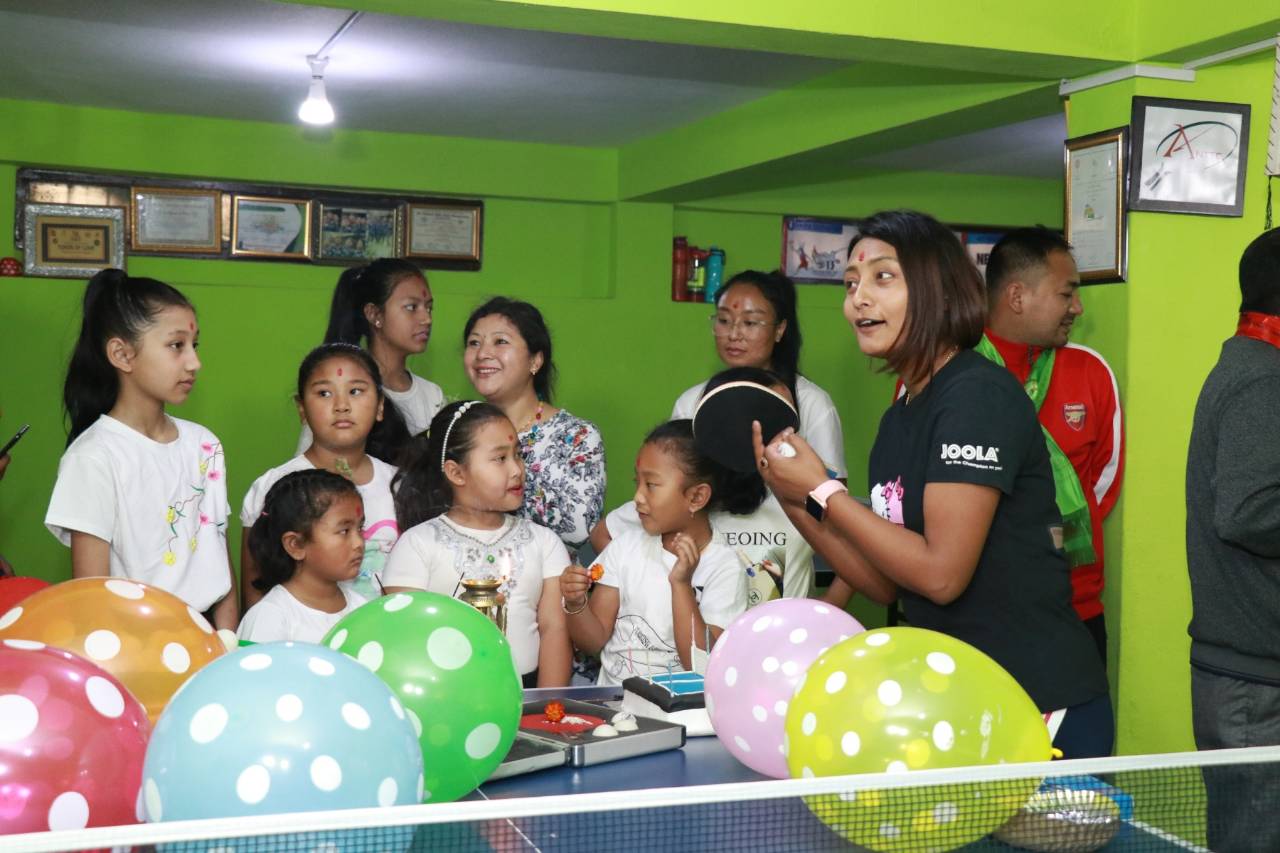Growing up in Nepal, Anita Maharjan (pictured, paddle in hand) received mixed messages. Her family taught her that gender should not dictate what she could and could not do. "I was lucky that my family treated me and my brother equally and let me play table tennis," she says. Unfortunately, traditional Nepalese culture sends a different, and decidedly less supportive message. "I got into sports which were not for girls as per the society," reflects Maharjan. "In my culture, women are expected to act in a particular way and to be confined within the four walls of her house. We cannot choose our career and are usually dismissed on major decision makings." With her strong will and passion for the sport, Maharjan fought through the societal backlash to become a top player. "Not only did I play table tennis," she says, "I played better than the boys. No one took me seriously because I am a girl. Male players would always underestimate my endurance and skills during practice. This only started to change after I won a silver medal in an inter-club table tennis tournament, where I beat one of the top ten male players in that match." After proving that she could accomplish what others said she could not, Maharjan began to think bigger. With a vision of a more equitable society, she began to work toward opening her own business: a table tennis club. "A lot of people laughed when they heard about my idea," says Maharjan. "Many asked why I wanted to do a men’s job and believed that I would fail. They said I would not make it because I am a woman. I prove them wrong with my success." On April 6, Maharjan officially cut the ribbon at Anniey's Club, her own table tennis center in Nepal. "With my club, I wanted to ensure that everyone gets the chance to play," explains Maharjan. "Table tennis encourages social interaction and does not discriminate between players. When we play table tennis, we are identified as players and not as male or female players. Table tennis allows women to be themselves, to be strong and confident. Strong and independent women are exactly what we need to achieve gender equality in the society." Because of Anita Maharjan's persistence, the next girl who wants to play table tennis in Nepal will have not only a role model, but a safe space in which to learn from her. "Be fearless and be strong," she counsels the next generation of Nepalese girls. "Follow your dreams and ignore what the society says. Work hard, keep trying, and one day your dreams will become reality. There is nothing men can do, and women cannot."
More at sportanddev.org
